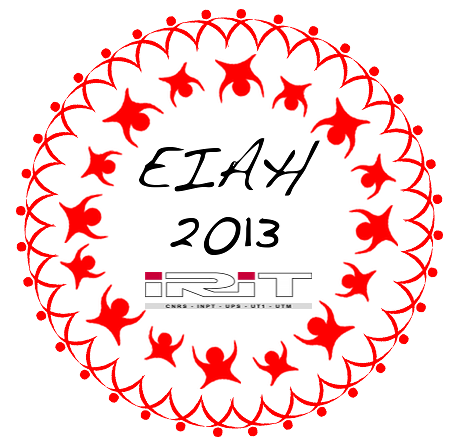 Colloque « L'université et le monde professionnel - quels enjeux pour le doctorat ? »
Colloque « L'université et le monde professionnel - quels enjeux pour le doctorat ? »
Approches sociohistoriques, socioculturelles et socioprofessionnelles, 24-25 Janvier 2013 - CNAM.
A l’initiative du groupe de travail appartenant au programme collaboratif 1 du Labex Hastec deux journées de colloque sont organisées dont l’enjeu est
de questionner la thèse de doctorat. En effet, à l’heure où les établissements d’enseignement supérieur professionnels frappent à la porte des universités pour pouvoir offrir à leurs étudiants la possibilité de passer une thèse de doctorat
propre au champ professionnel concerné (doctorat en exercice, doctorat professionnel, doctorat en VAE, doctorat en VAP, etc.), il devient urgent d’en dégager les enjeux et d’en comprendre les impacts éventuels.
Ces deux journées ont pour objectifs de clarifier ces demandes, d’en dégager les effets en rapport avec des perspectives historiques, culturelles et professionnelles sur un plan national et international. Quelle est la nature des résistances? Quelles sont les compétences épistémologiques minimum exigées d’une véritable thèse de doctorat quel que soit son domaine? Telles sont les questions abordées lors de ces deux journées.
Des historiens, des épistémologues évoqueront les lignes de force de la thèse de doctorat.
Des universitaires, responsables d’écoles doctorales évoqueront les évolutions récentes du doctorat et la place de la thèse.
Des universitaires étrangers feront part des expériences de leur pays.
Enfin, des témoins, d’une part, de mise en place d’une articulation thèse-monde professionnel, et d’autre part, de travaux de capitalisation et d’analyse de thèses déjà soutenues par les professionnels, permettront de comprendre s’il existe une spécificité ou non d’un doctorat fortement lié à un champ de pratiques professionnelles.
 Συμπόσιο "Το πανεπιστήμιο και ο επιχειρηματικός κόσμος - τι διακυβεύεται για το διδακτορικό; »
Συμπόσιο "Το πανεπιστήμιο και ο επιχειρηματικός κόσμος - τι διακυβεύεται για το διδακτορικό; »
Sociohistorical προσεγγίσεις, κοινωνικο-πολιτιστική και κοινωνικο-επαγγελματική, 24-25 Ιανουαρίου 2013 - CNAM.
Με πρωτοβουλία της ομάδας εργασίας που ανήκουν σε μία από τις συνεργατικό πρόγραμμα Labex Hastec διημερίδα διοργανώνεται με στόχο να είναι να αμφισβητήσει τη διατριβή. Πράγματι, σε μια εποχή που επαγγελματιών της τριτοβάθμιας εκπαίδευσης χτυπούν την πόρτα των πανεπιστημίων να προσφέρουν στους φοιτητές τους την ευκαιρία να περάσουν ένα διδακτορικό δική οικείου επαγγέλματος (Ph.D. στην άσκηση επαγγελματικής διδακτορικό, PhD VAE, PhD VAP, κλπ..), καθίσταται επιτακτική ανάγκη να προσδιοριστούν τα ζητήματα και να κατανοήσουν τις πιθανές επιπτώσεις. Περισσότερα...![]() The Department for Business, Innovation and Skills (BIS) is consulting on proposals to develop a new system for alternative providers of higher education.
The Department for Business, Innovation and Skills (BIS) is consulting on proposals to develop a new system for alternative providers of higher education.





/https%3A%2F%2Fprofilepics.canalblog.com%2Fprofilepics%2F1%2F0%2F1076071.jpg)